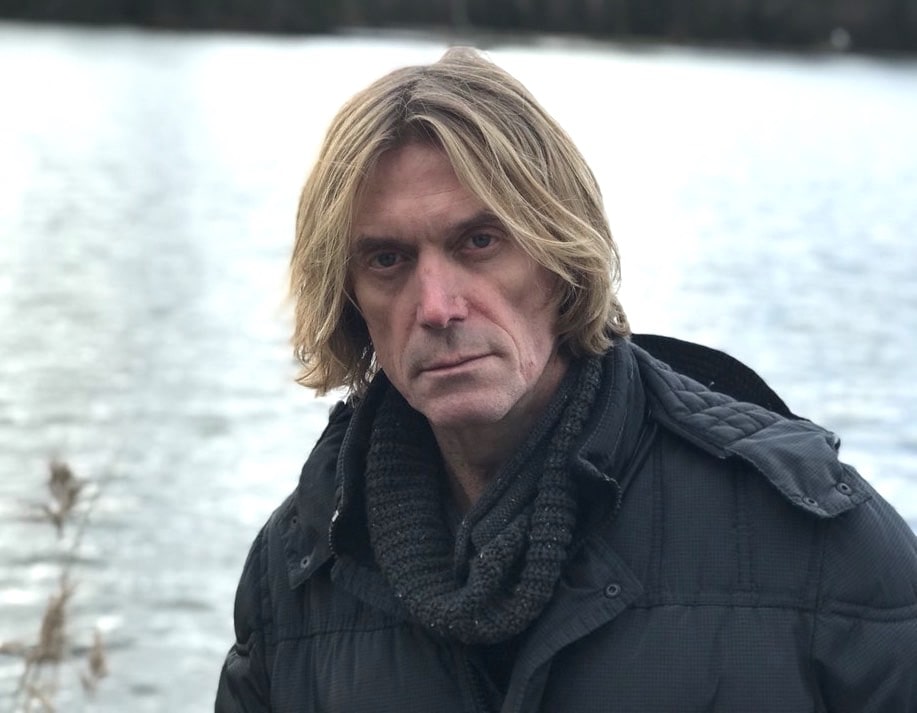Interviews

Darko Gavrilović
Professor of History, Novi Sad
The newer interview with Darko Gavrilović can be found here.
- What can you tell us about CHDR (Center for History, Democracy, and Reconciliation)? When was it founded, what are the goals, which activities do you focus on?
CHDR was founded in 2007 with the initiative by researchers from the former Yugoslav region and with cooperation with the (then) director of the Institute for Historical Justice and Reconciliation from Salzburg, professor Elazar Barkan. The main goal of founding CHDR was the creation of a network of researchers and politicians who want to contribute to establishing a regional politics of reconciliation, which is in direct opposition with the current state of affairs. That means that the conflict is still present, although nowadays it transferred from war trenches into the fields of (non)communication, media lynching, and occasional nationalistic excesses. Fighting against political elites that use nationalism as a tool to fuel nationalistic and religious hatred in order to justify and hide corruption and politically organized crime is obviously not easy. In that sense we try to give as much as we can at the moment: we organize gatherings with researchers and politicians who support the idea of normalization of relations in the region, we filmed three documentary series that focus on eliminating political myths related to the totalitarianisms that existed in former Yugoslavia, we organize summer schools for students from the region as well as round tables for the local returnee population that facilitates an educational approach and helps them develop tools that aid the development of their production capacities. Furthermore, we also organized two artistic workshops that connected Croat and Serb artists.
- One of the main aspects of your research are political myths – what motivated you to pursue this topic and in which contexts do you explore it?
The main reason is because Serbia has become a safe haven for court attempts to rehabilitate extreme right wingers as well as collaborationists of the occupying forces. For example, in the last couple of years we witnessed the attempt to rehabilitate Milan Nedić, a man who was at the head of the collaborationist government during World War II and whose men provided help to the occupiers in the liquidation of more than 10000 Jews. Those who defend him want to present him as a man who was only trying to protect the “biological substance of the Serb people” by giving up Jews and Roma. Moreover, they want to present him as a true patriot who was only fighting against the communist ideology. These and similar attempts to white wash history but also the social consciousness regarding certain collaborationists, such as Dimitrij Ljotić who admired Hitler as a notable world genius, develop under the guise of settling scores with historiography that developed during socialism and is accused of single-mindedness. In this sense we actually go from one totalitarian communist single-mindedness into another, setting a different kind of totalitarianism on a sacred pedestal. After the collapse of socialism and under the excuse that this miserable society of partocracy is actually a democracy, numerous nauseating political ideas have been present in the public sphere. In order to prevent the proliferation of various political myths and the political rehabilitation of Nazi collaborationists, we need to rely on our research and archival material that serves as evidence against their political rehabilitation.
- What can we learn from political myths? Could you give us an example of a political myth in the context of Croatia?
In the same way that different kinds of aggressors cannot live with the truth, the survivors cannot live without it — the aggressors are aware of this. It is why they rely on propaganda imbued with political myths, with the purpose of arousing prejudice in numerous readers and listeners because they are aware that this is an easier option than to use logic and reasonable debate. Extremist propaganda is full of political myths about the sacredness of the nation, about the promised land (which entails the expansion of boundaries with the politics of conquering), the eternal enemy, death, and leadership. This kind of propaganda is not only characteristic for totalitarian regimes; in its milder form it is also present in contemporary authoritarian regimes. If we would talk about political myths related to the Croatian past, then we could mention the myth about the WWII Nazi puppet state Independent State of Croatia, such as the one about the victims of the Jasenovac concentration camp that are either negated or minimized or both. There is also the myth about Ante Pavelić [Croatian fascist leader] as the undoubted Croatian patriot, or the myth about the Croatian border on the Drina river as a symbol that Croats have always been Antemurale Christianitatis.
- In august this year the 12th gathering was organized on the topic of Serb-Croat relations in the village of Golubić. What is the symbolic significance of Golubić for this gathering?
Golubić (in Obrovac) is a Serb returnee village in the Obrovac hinterland in a county with the majority Croat population. This county shows positive results in terms of Croat and Serb cohabitation; political representatives of these two peoples have even been in power together for almost twenty years. Trust is being continuously built and it doesn’t base itself on whether someone is a good Croat or Serb, but simply on whether they are a good person.
- How would you characterize contemporary Serb-Croat relations in terms of cultural memory?
It seems as if the politicians are continuously driving in reverse. In that sense they maintain themselves by poisoning people with a politicized return to the past, because if the people would pay closer attention to the present they would see that there should be no space for such politicians. What’s worse, humanity is lost if in a nationalistically framed cultural memory we find excuses for national and religious hatred and crimes.
- One of the questions raised during this year’s gathering was what kind of cultural memory do we actually want. How do you imagine cultural memory in the context of Serbia and Croatia?
The central theme of cultural memory in the region is not the representation of historical and objective knowledge, but first and foremost a collective and subjective perception of historical relations with the past in the present. It is characterized by individual memory, state and national rituals, and dominant narratives that are being transferred primarily through the media and school curricula. A striking aspect is that the collective perception shapes the subjective one. Social conflict and different relations and problems influence cultural memory as well, they are intertwined. In a highly emphasized cultural memory practices the elements that are less accentuated will probably end up being forgotten. A common narrative that fosters cultural memory as the representation of historical and objective knowledge is one of the possible directions towards reconciliation that requires each and every participant to leave behind their partiality and prejudice. To continue along that path means to take into account the past in order to learn something new for the future. Unfortunately, the two previously mentioned countries present a sad example of not only being unable to find the right way, but also of degrading a potentially good path towards reconciliation that was built during social-democratic rule in both.
- How would you like to see CHDR develop in the future? Are there any concrete plans for next year?
Wishes are a tricky thing in terms of developing activities in a region where we seldom have the understanding of the current governments. Since CHDR has been financially tied to domestic sources of funding, it is becoming increasingly clear that we need to find external sources as well and build stronger relations with organizations in Europe that deal with similar topics. As we are turned towards the future, our emphasis always lies on the youth, on students from the region who would be able to carry on the ideas of reconciliation further. In this respect we will probably do our best to organize a summer school next year that would connect not only students from the region, but also those from other countries that were faced with national, ideological, and religious conflicts. We are actually currently discussing potential ideas with our colleague from Ireland, John Paul Newman, about inviting his students who have similar experiences on the confessionally divided island.
- How would you describe your thoughts about conflict?
For me as a historian, conflict in political history is a result of dynamic psychological events, completely opposed political motives that cannot be solved with dialogue and a peaceful seeking for a solution. As such, conflict often results in frustration, even more so if the opposites are bigger and the obstacles for their expression more challenging. It leads to physical violence and in extreme cases clashes of varying intensity that can result with expulsion, ethnic cleansing, and genocide. The antithesis to conflict is dialogue, a confrontation of attitudes and opinions that carry in themselves a level of objectivity based on which we can come up with solutions. For me as the director of CHDR and an activist, in order to avoid a conflicting situation that could further escalate, the most important thing is to develop a society with content individuals. Or to put it more clearly, not allow ourselves to become weapons in the hands of those who would want to destroy our inner peace. We should remember that we are not the noise of other people’s political passions and that our lives belong to us only. We need to turn to those who value and foster peace and love.
Interview: Katarina Damčević

